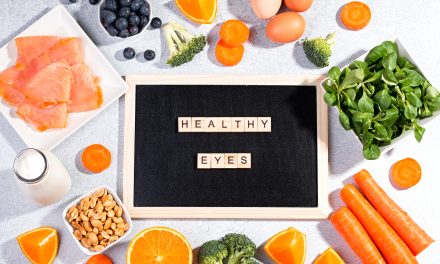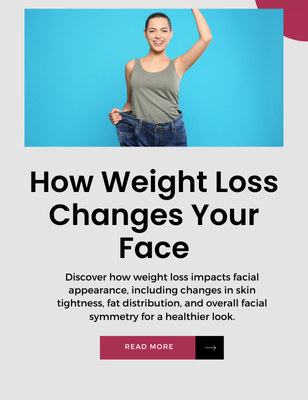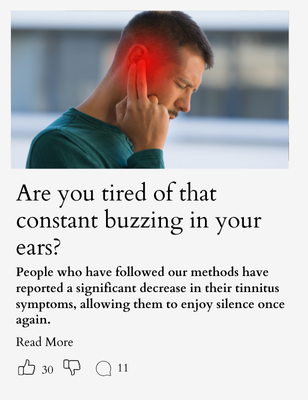Maintaining optimal eye health is crucial, and dietary supplements can play a key role. Numerous studies suggest that specific nutrients are essential for maintaining and potentially improving eyesight. These nutrients support the structure and function of the eyes, slow the progression of age-related eye diseases, and contribute to overall eye health. Vitamins such as vitamin A, C, and E, along with minerals like zinc, are commonly associated with eye health benefits.
Carefully chosen supplements can complement a diet that might be lacking in certain nutrients. However, it’s vital to consider the quality and formulation of these supplements, as well as to consult with healthcare professionals before starting any new supplement regimen. Supplementation should be one component of a comprehensive approach to eye health, which also includes maintaining a healthy lifestyle and following professional advice on eye care practices.
Key Takeaways
- Specific nutrients are essential for maintaining and potentially improving eyesight.
- The choice of supplements should be based on quality, formulation, and professional advice.
- A holistic approach to eye health includes a balanced diet, lifestyle modifications, and proper eye care practices.
Understanding Vision and Eye Health
Vision is a complex process involving the eye’s ability to perceive and interpret light. Eye health is crucial for maintaining this process, as various conditions can impair vision. Key elements of the eye, such as the retina and macula, play significant roles in seeing, and understanding common eye conditions is vital for early detection and management.
Anatomy of the Eye
The human eye is a sophisticated organ that captures light and transmits signals to the brain for visual recognition. The retina is the light-sensitive layer at the back of the eye, containing photoreceptor cells that convert light into electrical signals. Within the retina, the macula is responsible for central vision and high visual acuity, essential for tasks like reading and recognizing faces.
Common Eye Conditions
Common eye conditions affecting vision include:
- Age-related macular degeneration (AMD): This disease involves the deterioration of the macula, leading to a loss of central vision.
- Cataracts: Characterized by the clouding of the eye’s lens, cataracts often develop with aging and can cause blurred vision.
- Glaucoma: Glaucoma is related to increased pressure inside the eye, which can damage the optic nerve and result in vision loss.
- Diabetic retinopathy: Caused by damage to the blood vessels in the retina, this condition is a complication of diabetes and can lead to blindness if untreated.
- Dry eye disease: A condition where the eyes do not produce adequate tears or the tears evaporate too quickly, causing discomfort and potential vision impairment.
Understanding these conditions and their impact on the eye’s anatomy helps individuals recognize the importance of maintaining eye health through proper nutrition, regular check-ups, and awareness of symptoms.
The Impact of Nutrition on Eyesight
Nutrition plays a critical role in maintaining and potentially improving eyesight. The consumption of certain nutrients, particularly antioxidants and vitamins, can significantly influence overall eye health.
Role of Antioxidants
Antioxidants such as lutein, zeaxanthin, and beta-carotene are crucial in protecting the eyes from the detrimental effects of oxidation and light-induced damage. These carotenoids are concentrated in the retina, and their high antioxidant properties help to combat the deterioration of the macula. Consuming fruits and vegetables rich in these compounds can be beneficial for long-term visual wellness. For detailed information on where to find these antioxidants, one can refer to the discussions on the best vitamins for your eyes by Mayo Clinic Press.
Essential Vitamins and Their Functions
Vitamin A:
- Function: Essential for a clear cornea and the formation of rhodopsin, a critical eye protein for low-light vision.
- Sources: Carrots, sweet potatoes, and dark leafy greens.
Vitamin C:
- Function: Supports the health of blood vessels in the eyes and may reduce the risk of cataracts.
- Sources: Citrus fruits, berries, broccoli, and bell peppers.
Vitamin E:
- Function: Protects eye cells from damage by free radicals which can contribute to the development of age-related degeneration.
- Sources: Almonds, sunflower seeds, and fortified cereals.
Incorporating a variety of nutrients within a balanced diet not only promotes general health but is also vital for sustaining eye health. Essential minerals, such as zinc and selenium, support the uptake of vitamin A and the protective effects of antioxidants, which can be found in foods like oysters, beef, pork, and nuts.
Specific Supplements for Eyesight
When considering supplements for eyesight improvement, it’s crucial to focus on nutrients that have been shown to contribute to macular health and overall visual wellness.
Carotenoids and Macular Health
Carotenoids are pigments found in plants that play a crucial role in eye health, particularly in the macula, the part of the eye responsible for central vision. Lutein and zeaxanthin are carotenoids concentrated in the macula and retina. They act as antioxidants to protect the eyes from harmful light and oxidative stress. Ingesting lutein and zeaxanthin through diet or supplements can help maintain the structural integrity of the macula. For instance, foods like spinach and kale are high in these nutrients, but for those who find it difficult to consume enough through diet alone, supplements for eyesight improvement may be beneficial.
Other important carotenoids include beta-carotene, a precursor to vitamin A, which is essential for good night vision and overall eye health. However, due to potential toxicity when consumed in high amounts, especially from supplements, it’s vital to adhere to recommended dosages.
Vitamin C and vitamin E are potent antioxidants that complement carotenoids in supporting eye health. They help to regenerate other antioxidants within the body, including those found in the eye, and can be found in various fruits and vegetables as well as in supplement form.
Omega-3 fatty acids, particularly DHA and EPA found in fish oil, contribute to visual development and the health of the retina. There is growing evidence that omega-3s may help dry eye symptoms and could also contribute to macular health.
Zinc plays a vital role in transporting vitamin A from the liver to the retina, helping to produce melanin, a protective pigment in the eyes. Zinc can be consumed through foods like oysters and pumpkin seeds, but supplements may be considered if dietary intake isn’t sufficient.
Selenium, though required only in small amounts, is a mineral that supports the absorption of antioxidants and can thereby play a part in maintaining eye health. A balanced level of selenium is vital as both deficiency and excess could harm the body.
It’s important to consult with a healthcare provider before starting any new supplement regimen to ensure they are necessary and safe based on individual health conditions and medications.
Age-Related Eye Diseases and Supplementation
Age-related macular degeneration (AMD) is a significant cause of vision loss in older adults, but dietary supplements may help slow its progression. Robust findings from pivotal studies have illuminated the benefits of specific nutrients in AMD management.
Preventing AMD Through Diet
Clinical trials, specifically the Age-Related Eye Disease Studies (AREDS and AREDS2), provide evidence supporting the use of dietary supplements to slow the progression of AMD. These comprehensive studies suggest that formulations containing antioxidant vitamins and zinc may benefit individuals with intermediate AMD or those who have late AMD in one eye.
- AREDS: In the original AREDS study, a formulation that included vitamin C, vitamin E, beta-carotene, zinc, and copper was associated with a reduced risk of advanced AMD progression.
- AREDS2: This follow-up study refined the original formula by adding lutein and zeaxanthin and substituting beta-carotene with these carotenoids. Additionally, AREDS2 investigated the effects of omega-3 fatty acids eicosapentaenoic acid (EPA) and docosahexaenoic acid (DHA), though omega-3s did not reduce the risk of AMD progression.
Supplements based on AREDS and AREDS2 formulations are widely suggested for patients with specific types of AMD to help maintain their eyesight. However, it is important for individuals to consult with healthcare professionals before starting any new supplement regimen.
Dietary Considerations for Optimal Eye Health
When it comes to protecting and improving eyesight, incorporating the right foods into one’s diet can be as crucial as choosing quality supplements. Nutrients found in various foods can help maintain eye health and prevent vision deterioration.
Foods to Include
Consuming a balanced variety of nutrients is essential for maintaining eye health. One should aim to include the following in their diet:
- Fish: High in omega-3 fatty acids, especially salmon, which is beneficial for retinal health.
- Nuts and Seeds: Sources of vitamin E and omega-3s, which can help protect the eyes from age-related damage.
- Leafy Green Vegetables: Vegetables like spinach, kale, and collards are high in lutein and zeaxanthin, crucial for eye health.
- Carrots: Known for their high beta-carotene content, which the body uses to produce vitamin A, important for good vision.
- Spinach: Contains zeaxanthin and lutein, which are carotenoids known to help maintain eye health.
- Broccoli: This vegetable is a good source of nutrients, including antioxidants crucial for vision preservation.
These foods are staples in diets such as the Mediterranean diet, which has been associated with better heart health and may support eye health as well.
Foods to Avoid
Certain foods can have negative effects on eye health. To best support vision, one should consider limiting:
- High-Sugar Foods: Excessive sugar can lead to problems like diabetic retinopathy.
- Saturated Fats: Found in many fast foods, these can adversely affect circulation and heart health, impacting the eyes.
- Smoked or Highly Processed Meats: For smokers and non-smokers alike, the nitrates in these foods can be harmful to eye health.
By selecting the right foods and avoiding ones that can impair eye health, individuals can support their vision and overall well-being through their dietary choices.
The Role of Lifestyle in Eye Health
Making informed lifestyle choices plays a significant role in maintaining eye health and improving eyesight. Factors such as environmental protection and habits can influence the well-being of your eyes.
Protecting Eyes from External Factors
Sunglasses: A critical accessory, sunglasses shield your eyes from harmful ultraviolet (UV) light. Prolonged exposure to UV rays can damage the sensitive cells in the eyes, increasing the risk of cataracts and macular degeneration. It’s essential to choose sunglasses that block out 99% to 100% of both UVA and UVB radiation.
Hat: In addition to sunglasses, wearing a hat with a brim can reduce the amount of UV light reaching your eyes from above or around glasses. Hats can also protect your eyes from windblown debris that could cause scratches on the corneal surface.
Smoking: Smoking can have an adverse effect on eye health. It is associated with an increased risk of developing age-related macular degeneration, cataracts, and damage to the optic nerve. These risks are due to the harmful chemicals in cigarettes contributing to the formation of free radicals, which can harm ocular tissues.
Blood Vessels: The eyes are rich in tiny blood vessels that can be affected by lifestyle factors such as diet and exercise. A healthy diet and regular exercise improve blood circulation, which is beneficial for the health of these vessels.
Blue Light: With the increase in screen time, there’s much concern about the effects of blue light on the eyes. Some studies suggest that high-energy visible blue light can contribute to eye strain and discomfort. Using blue light filters on screens or wearing protective eyewear that filters blue light may help in reducing eye strain.
Free Radicals: A healthy diet rich in antioxidants can neutralize free radicals, unstable molecules that can damage cells, including those in the eye. Foods high in vitamins C and E, zinc, and carotenoids are particularly good at combating these harmful particles and supporting overall eye health.
Enhancing Eye Function Through Supplementation
Supplementing for eye health can target specific aspects of vision, such as sharpness and nighttime visibility. Adequate intake of eye vitamins and pigments is crucial to prevent damage and reduce eye fatigue.
Focus on Vision Clarity
Vision clarity is essential for daily tasks and maintaining hand-eye coordination. Key nutrients known as carotenoids, including lutein and zeaxanthin, are vital eye pigments found in high concentrations within the retina. These pigments protect the eyes by filtering harmful blue light and can be replenished with dietary supplements to potentially enhance visual contrast sensitivity. A study highlighted on Mayo Clinic Press discusses the importance of carotenoids like beta carotene and its role as a precursor to vitamin A, which is directly linked to maintaining eye health.
- Carotenoids
- Lutein: Supports retina health
- Zeaxanthin: Filters blue light
- Beta carotene: Vitamin A source
- Vitamin A
- Essential for clear vision
- Deficiency can cause night blindness
Supplements for Night Vision
Night vision and the ability to see in low-light conditions hinge on the presence of the protein rhodopsin. Vitamin A plays a pivotal role in the regeneration of rhodopsin and is therefore indispensable in maintaining healthy night vision. Supplements marketed as vision enhancers often focus on vitamin A and its derivatives due to their direct impact on this protein. Zinc is another critical element that supports the function of enzymes responsible for eye health and can help decrease the risk of night vision difficulties. Information from Forbes Health suggests the combination of antioxidants, including vitamin A, may benefit patients with specific eye conditions affecting their night vision.
- Rhodopsin Support
- Vitamin A: Critical for rhodopsin
- Zinc: Enzyme function aid
- Antioxidants
- Protects against cellular damage
- Aids in night vision maintenance
Professional Advice on Eye Care
When it comes to enhancing one’s vision through supplements, it is essential to seek credible professional advice. An ophthalmologist can provide personalized recommendations based on clinical studies and guidelines established by respected institutions like the National Eye Institute.
Seeking Expert Guidance
When considering supplements for eyesight improvement, an ophthalmologist should be the first point of contact. These eye care professionals can assess individual needs, consider any existing medications, and recommend supplements backed by clinical studies. They stay informed about the latest research and guidelines from authoritative sources, including the National Eye Institute. This ensures that any advice provided on supplements is both safe and effective for the unique requirements of an individual’s eye health.
Supplements and Their Regulation
When selecting supplements, particularly those aimed at improving eyesight, it is crucial to understand the importance of quality and how they are regulated. This ensures a choice that supports better vision and overall health without compromising safety.
Understanding Supplement Quality
Dietary supplements, like those focused on vitamins for eye health, are not regulated to the same stringent standards as pharmaceutical drugs. Multivitamins and targeted supplements designed to support better vision are overseen by the FDA under a different set of regulations than those applied to prescription medications. This means that the burden of ensuring safety, quality, and efficacy falls largely on the manufacturers.
Companies often seek third-party certifications to assure consumers of their supplement’s quality. When shopping for vitamins for eye health, a savvy consumer should look for indicators of quality assurance such as:
- USP Verified Mark: Signifies the supplement has been voluntarily tested and verified for quality, potency, and purity.
- NSF Certification: Indicates that the product has been independently tested to confirm that it meets quality and safety standards.
- GMP (Good Manufacturing Practices): Demonstrates compliance with industry-standard practices.
When considering dietary supplements for overall health or more specific outcomes like better vision, one should always examine the label for evidence of such quality assurance protocols. Additionally, choosing supplements backed by clinical research can help ensure that they contain nutrients shown to be effective for their intended use.
Choosing the Right Supplements
When seeking supplements for eye health improvement, it’s important to consider scientifically supported ingredients like the AREDS2 formula and individual eye health needs.
Personalized Supplement Recommendations
Each person’s eye health varies, and factors such as family history of diseases like glaucoma or cataracts, personal risk factors for macular degeneration, and current eye health status should dictate the choice of supplements. One should consult their healthcare provider to determine which specific nutrients and supplements cater to their unique requirements. For instance, individuals at high risk for age-related macular degeneration might benefit from a different supplement composition than those aiming for general eye health maintenance.
The Best Overall Supplements for Eye Health
Certain nutrients have been consistently recognized for their positive impact on overall eye health. Antioxidants and nutrients such as lutein and zeaxanthin, which are integral components of the AREDS2 formula, support the reduction of the risk of age-related eye diseases. Omega-3 fatty acids are also valued for their anti-inflammatory properties which can contribute to the health of the eyes. Below is a breakdown of essential supplements beneficial for eye health:
- Antioxidants: Including vitamins C and E, vital for protecting the eyes from oxidative stress.
- Zinc: Plays a role in maintaining the health of the retina and may help slow the progression of macular degeneration.
- Lutein & Zeaxanthin: Important for reducing the risk of chronic eye diseases, including age-related macular degeneration and cataracts.
- Omega-3 Fatty Acids: Beneficial for relieving symptoms of dry eye and reducing the risk of macular degeneration.
For the best overall eye health support, a balanced intake of these key nutrients, either through diet or supplementation, is recommended.
Frequently Asked Questions
When exploring ways to enhance eye health and vision, many individuals turn to dietary supplements. The effectiveness and specific benefits of these supplements are often questioned, leading to a need for clear, evidenced-based responses.
What are the top-rated supplements for enhancing vision?
The top-rated supplements for enhancing vision typically include a combination of antioxidants such as Vitamin C, Vitamin E, zinc, and copper, which may help protect the eyes against damage from free radicals.
Which vitamins are most crucial for preventing macular degeneration?
Vitamins that are most crucial for preventing macular degeneration include Vitamin C, Vitamin E, zinc, copper, lutein, and zeaxanthin. These nutrients are essential for maintaining eye health and function.
How effective are eye supplements in correcting blurry vision?
Regarding blurry vision, eye supplements may help to an extent but they are generally not a cure for underlying conditions. A health professional can offer guidance based on an individual’s specific health needs.
Can the progression of vision loss be slowed with specific vitamins?
Specific vitamins like Vitamin C and E, lutein, and zeaxanthin, as part of the AREDS formulation, have been shown to slow the progression of vision loss due to age-related macular degeneration in some people.
Are there supplements that can help reduce the occurrence of eye floaters?
While there is no definitive supplement known to reduce eye floaters, maintaining overall eye health through a balanced diet rich in antioxidants may help manage their occurrence.
What dietary foods offer the best natural vitamins for eye health?
Dietary foods that offer the best natural vitamins for eye health include leafy green vegetables, citrus fruits, eggs, and fatty fish. These can provide a range of nutrients such as omega-3, lutein, and zeaxanthin, which support visual wellness.





















